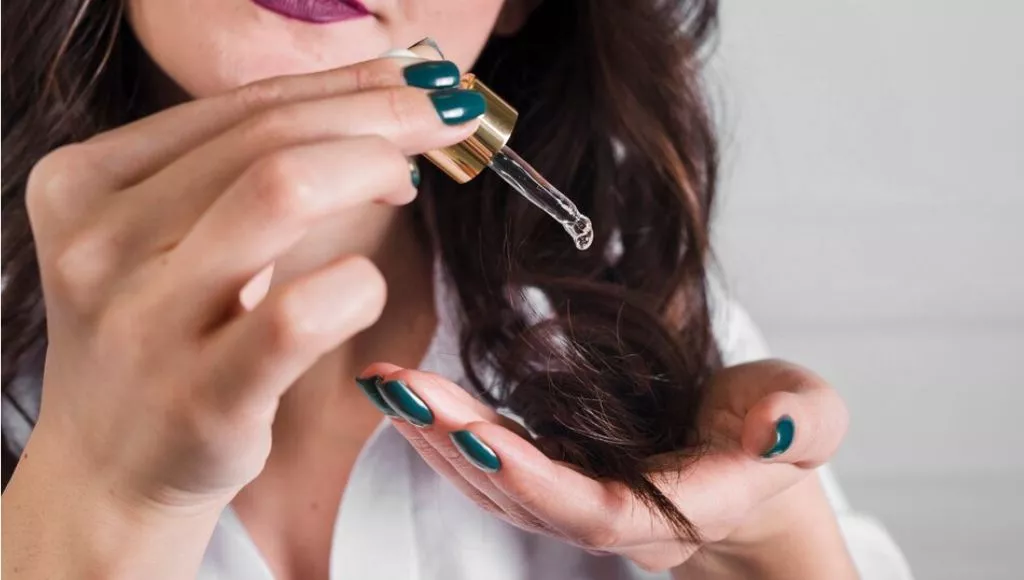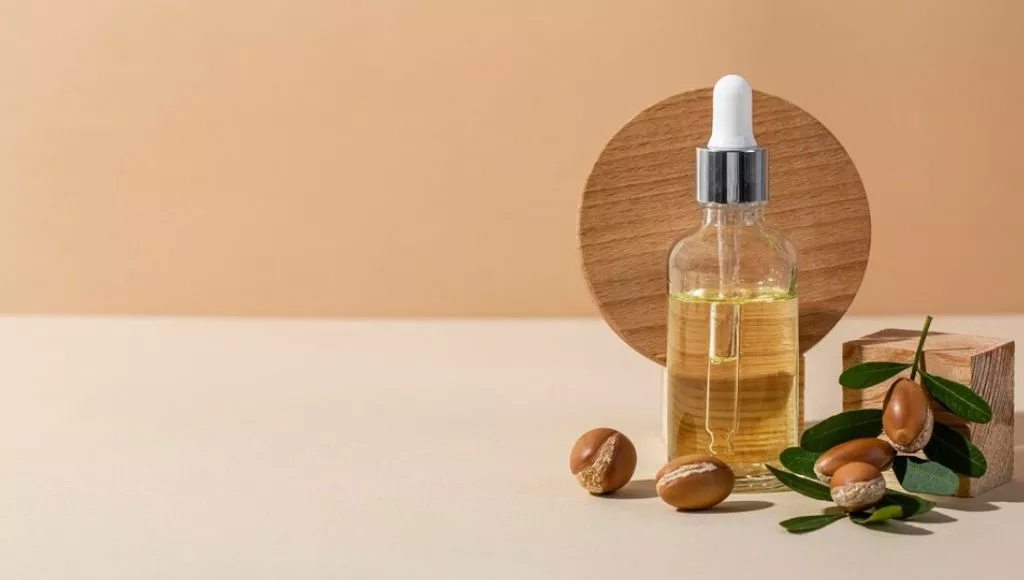Argan oil is often touted for its potential benefits for hair health. Extracted from the kernels of the Argan tree, its rich nutrient profile classifies it to be a perfect solution for hair health. While we know how it helps the skin, what it does to the hair is not explored.
Does Argan Help With Hair Growth?
Argan oil benefits hair growth in the following ways-
1. Moisturization
Argan oil is known for its moisturizing properties. It contains high levels of fatty acids, particularly oleic and linoleic acids, which can help lock in moisture and prevent dehydration of the hair shaft.

When applied to the hair, argan oil makes a protective barrier reducing water loss and keeping the hair hydrated. Individuals with dry or damaged hair can use it to improve the overall texture and manageability.
2. Scalp Health
A healthy scalp is crucial for optimal hair growth. Argan oil contains Vitamin E, which has antioxidant properties that can benefit the scalp. Antioxidants help combat free radicals, which may contribute to scalp damage and hinder hair growth.
Additionally, the anti-inflammatory properties of argan oil may aid in soothing irritated or inflamed scalp conditions. By maintaining a healthy scalp environment, argan oil indirectly supports the conditions necessary for hair growth.
CHECK OUT:- Benefits Of Argan Oil For All Skin Types To Get Soft, Glowing Skin
3. Protection
Argan oil is rich in antioxidants including Vitamin E and Polyphenols. These antioxidants can help protect the hair from damage caused by free radicals which are molecules that lead to oxidative stress.
Environmental factors such as UV radiation, pollution, and harsh chemicals in hair care products can contribute to free radical damage. The protective properties of argan oil may help shield the hair from these external stressors, preserving its strength and vitality.
4. Split Ends Prevention
Regular use of argan oil can contribute to the prevention of split ends. Split ends occur when the hair shaft becomes damaged and begins to fray. The moisturizing properties of argan oil help to nourish and strengthen the hair, reducing the likelihood of split ends.
Applying argan oil to the ends of the hair can act as a protective barrier, preventing dryness and bitterness. This is particularly beneficial for individuals with longer hair, as split ends can lead to further breakage and hinder overall health.
CHECK OUT:- Scalp Care Can Improve Your Hair Health
How To Apply It?
Now that we know how healthy Argan oil is, it is important to use it correctly and the guide is simple.
- Damp or Dry Hair- Applying it on damp hair can lock in the moisture. After washing the hair, towel dry to remove excess water, and then apply the oil. This can enhance the absorption of the oil and contribute to improved hydration. Alternatively, argan oil can be applied to dry hair for an extra boost of shine and manageability. This is especially useful for quick touch-ups between washes. Use a small amount and distribute it evenly through the hair.
- Amount- Begin with a small amount of argan oil typically a few drops. The amount you need might also depend on the length and thickness of your hair. It is advisable to start conservatively to avoid making your hair greasy. You can always add more if needed. Most importantly, pay attention to how your hair responds. If you have longer or thicker hair, you might need slightly more oil, but it’s essential to find the right balance for your hair type.
- Ends of Hair- Concentrate the application of argan oil on the ends of your hair, especially if you are dealing with split and dryness. The ends of the hair are typically more prone to damage and can benefit from the moisturizing and nourishing properties of the oil. If you have a greasy scalp, you might want to avoid the oil.
- Scalp Treatment- If you’re using argan oil for scalp health, apply a small amount to your fingertips. Gently massage the oil into your scalp using a circular motion to improve circulation.
Conclusion
While these potential benefits suggest that argan oil could play a supportive role in maintaining healthy hair, the results could vary. Additionally, if hair loss or growth issues are a concern, it’s advisable to consult with a healthcare professional or a dermatologist.
They can provide personalized advice and identify any underlying factors that may be contributing to the condition of the hair and scalp.

